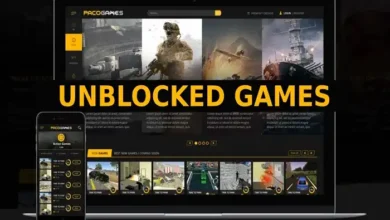Navigating the Intricacies: A Deep Dive into the Work of a Game Localization Agency

Introduction to Game Localization
The gaming industry is a worldwide phenomenon, with games created in one place frequently finding passionate customers in completely other locations. This fact demands the game localization procedure. Game localization, in its broadest definition, refers to adapting a video game to meet the cultural, linguistic, and technological needs of a particular market. It is a necessary procedure that allows players worldwide to comprehend and immerse themselves in the gaming world, regardless of their geographical or cultural background.
Localization not only entails translating the game’s textual and audio components into the target language but also altering the gameplay and graphics to conform to the target market’s cultural sensitivities. The importance of game localization stems from its capacity to overcome cultural divides, making games more accessible and entertaining to a broader audience.
However, the game localization process is more complex than it may appear. It necessitates a systematic approach, a thorough awareness of the target culture, and a keen eye for detail. This is when a game localization agency comes in handy.
What Does a Game Localization Agency Do?
A game localization agency is a go-between for the producer and the intended audience. They are critical in ensuring that the game is appealing to gamers from many cultural backgrounds. A game localization service uses a team of competent translators, cultural experts, and technological specialists who cooperate to adapt every part of the game to the target market.
A game localization agency’s work goes beyond mere translation. They are also changing the game’s content, including visual and audio aspects, to conform to cultural norms and legal laws in the target location. A game localization firm, in essence, takes the original game and creates a version that seems native to the target market’s gamers.
A game localization agency also handles technical concerns, such as adapting the game’s interface to suit the translated text or ensuring that the game works smoothly on the prevalent hardware and software combinations in the target market. It’s a complex procedure that necessitates a thorough grasp of the game business and the target culture.
The Importance of Game Localization
The importance of game localization cannot be overemphasized in the increasingly worldwide gaming world. It is an essential step in broadening a game’s appeal, making it more accessible and relatable to a larger audience. Game localization contributes to a more immersive and pleasurable gaming experience by tailoring the game to the cultural and linguistic subtleties of the target market.
Furthermore, game localization has a significant impact on a game’s financial success. It is possible to drastically increase sales and income by making a game more attractive to a worldwide audience. Furthermore, a well-localized game may boost a brand’s image by promoting player loyalty and recruiting new ones.
However, the significance of game localization extends beyond purely commercial factors. It is also crucial in encouraging cultural interchange and understanding. Game localization helps overcome cultural boundaries and develops a feeling of global togetherness via shared gaming experiences by presenting games in a way that connects with diverse cultures.
The Process of Game Localization
The game localization process is lengthy and involves multiple phases. First, the game localization agency analyzes the game thoroughly, identifying the aspects that must be translated. Everything from the game’s text and conversation to its images, music effects, and user interface might be included.
After identifying the items for localization, the following stage is translation. This is more than just a direct translation of the game’s text, though. Cultural adaptation is also required to guarantee the game’s content is relevant and relatable to the intended audience. This might include altering allusions to the originating culture, updating comedy or terminology, or even rewriting some sections of the game’s plot.
The translated version of the game is tested after translation and cultural adaptation. This is an essential step in ensuring that the localized game works properly and delivers a great gaming experience for the intended audience. Before the game is launched in the target market, the testing process might detect linguistic problems, cultural differences, or technological flaws.
How to Choose a Game Localization Agency
Choosing the proper game localization agency is a crucial choice that may have a considerable influence on a game’s performance in the worldwide market. When making this decision, there are various aspects to consider. To begin, it is critical to select an agency with a solid track record in game localization. This displays not just their knowledge but also their ability to deal with the specific obstacles of localizing games.
Furthermore, it is critical to select a game localization service that has a thorough grasp of the target culture. This understanding will guarantee that the localized game is not just technically correct but also culturally relevant and enjoyable for the intended audience.
It’s also a good idea to consider the agency’s technological skills. More than merely translating text, game localization includes changing the game’s interface, testing the game on various hardware and software settings, and ensuring that the localized version works correctly. As a result, a game localization company with solid technological capabilities is required.
The Challenges Faced by Game Localization Companies
Despite its significance, game localization is challenging. The cultural adaptation of a game is one of the most complex difficulties that game localization companies encounter. This includes not only translating the game’s language but also making sure that the game’s content, plot, and gameplay are acceptable and entertaining for the intended audience. This necessitates a thorough awareness of the target culture and a sharp eye for detail.
The technological component of game localization is another big problem. This involves changing the game’s interface to suit the translated text, assuring compatibility with standard hardware and software configurations in the target market, and testing the localized game for problems. These technological difficulties need a high level of knowledge and might be time-consuming.
Furthermore, game localization companies must work under strict timelines. Games frequently have a global release date, which implies that the localization process must be done quickly. This puts additional strain on the localization team and can make the process more difficult.
How to Work Effectively with a Game Localization Company
Working successfully with a game localization company may greatly simplify the localization process and boost the chances of a successful localization project. One of the most essential things to remember is to include the localization team early in the production process. This helps the localization crew to become acquainted with the game and anticipate any localization challenges.
Furthermore, clear and consistent contact with the game localization company is required. This ensures that all parties are on the same page and can aid in the avoidance of misunderstandings or delays. It is also critical to supply thorough resources to the localization team, such as detailed design papers, scripts, and any other materials that might aid in the localization process.
Finally, it is critical to appreciate the game localization company’s competence. They are the subject matter experts, and their advice may be necessary to ensure the game is adequately localized for the target market. As a result, it’s critical to be receptive to their criticism and ideas.
Conclusion
Finally, in today’s global gaming scene, the function of a game localization agency is critical. These organizations play a crucial role in making games accessible and entertaining worldwide by utilizing their knowledge in cultural adaptation, technological adaptation, and thorough testing.
However, game localization has its challenges. To provide a well-localized game, game localization companies must manage many challenges, ranging from cultural subtleties to technological complexity. These issues, however, may be efficiently controlled with the correct strategy and teamwork.
Indeed, the field of game localization is an enthralling one, combining languages, culture, technology, and gaming. As the gaming business expands and diversifies, the job of a game localization company will undoubtedly become even more critical, bridging cultural differences and uniting gamers worldwide via shared gaming experiences.




